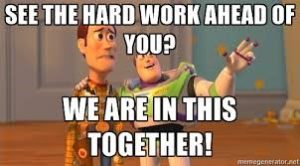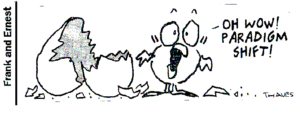The symptom is the candidate widely known to be incompetent won the election. Why 63 million people voted the way they did is to identify the disease. Curing the disease is a whole other thing.

Who voted for the Incompetent?
- Rural areas and many in the third ring suburbs.
- Urban older blue-collar white males
- Voting against Clinton and by extension Obama.
- Traditional republican voters voting for the party not the person
Why did they vote the way they did?
In my opinion:
- Rural areas and urban blue-collar whites felt (feel) left behind so someone promising to change things back to the way they were was appealing.
- Voting against Clinton is the result of 20+ years of propaganda against them and 8 years of propaganda against Obama.
- Traditional republican voters felt they were going to lose the election anyway so the benefits of supporting their party was worth the slight risk of voting for an incompetent leader
What is the cure?
As a lifelong Democrat, I can appreciate voting for a party rather than a candidate. I hope that my party would not put me in the position the Republican Party put its members in by nominating an incompetent candidate with no relevant experience.
Using propaganda techniques against the Clintons and Obama built many careers. At the center of almost all of the techniques is spreading a lie, “fake news”. The real purpose of most fake news is to drive traffic to a TV station or website to generate ad revenue. Eye-catching headlines and outrageous content get views and thus revenue. The unfortunate side effect is that people (our current President) start to believe the fake news. Even if they do not believe the news itself, they end up having a negative feeling about the subject of the news.
In today’s world it is easy to fact check almost anything. Google and Bing are only a click away. The way to stop the fake news is to not view it in the first place and certainly do not share it. Let it die from inattention. Spreading fake news is to be a liar. There is no excuse for not knowing if it is fake. Do not be the liar by spreading fake news. When you see fake news, maybe spreading the truth would be a good idea. For example, I once posted that it was ridiculous to criticize Obama for the Baptist church he attended and in the same story criticize him for being a Muslim. In my opinion, spreading such a story would make you a liar.

Which leaves us with millions of rural folks and urban white males feeling left behind. The cause is easy to describe; the cure is debatable. Virtually all jobs and most social interactions are now technology based. This is the information age and many of us are in the thick of it. Rural America and older blue-collar workers have fallen behind. They face many issues: Training, support, economics of access in low population density areas, willingness to change, financing, social pressure, etc. The fancy word for this is social exclusion.
I do not know the cure. Certainly getting broadband to all corners is a start. Providing training and support while they transition is important. Helping erase the stigma of learning to do things a new way rather than sticking with the old methods. Does it make sense to encourage starting small technology based businesses in small towns with some sort of incentives? Somehow, the 50-year-old factory worker needs to face challenges and barriers to learning the new technical skills needed for available jobs. Somehow broadband and training needs to get to rural America. I have no real idea how to encourage businesses to grow in a small town.
Conclusion
The current president is incompetent. We need to continue the hard work of preventing him from doing irreparable harm to our nation. However, we need to remember that he was the symptom not the disease. Putting the train back on the tracks means reducing fake news (encouraging the truth) and addressing the need for rural America and older blue-collar workers to transition to the information age.






